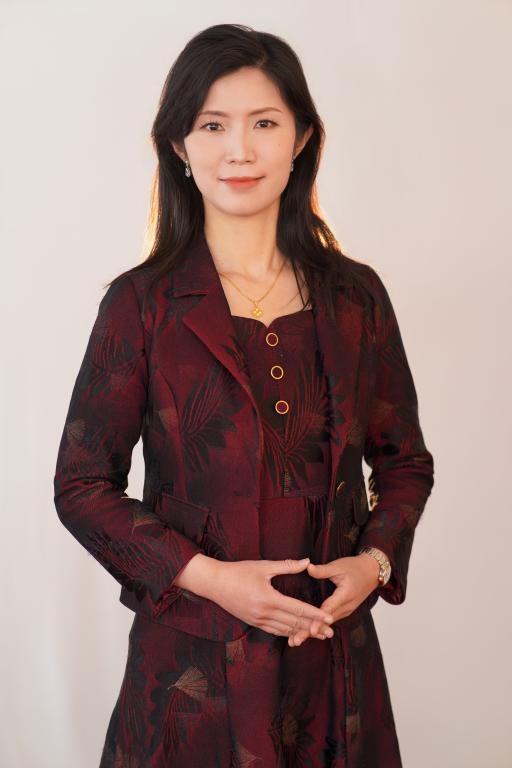School of Life Sciences
Tenure Track Associate Professor, Independent PI
Tumor immunology and immunotherapy
 chunwanlu@tju.edu.cn
chunwanlu@tju.edu.cn
 Room 212, Building 15, Tianjin University
Room 212, Building 15, Tianjin University
 300072
300072
Dr. Lu joined Tianjin University in November, 2020. More than 50 papers have been published during past few years, including Journal of the National Cancer Institute (IF:13.506), Journal for Immunotherapy of Cancer (IF:13.751), Cancer Immunology Research (IF:11.151), Oncogene(IF:9.87), OncoImmunology (IF:8.11), Cancer Letters (IF:8.709), etc. An U.S. patent has been awarded. One NIH grant has been finished and two NSFC grants are active. H-Index is 28 based on Google Scholar.
In last few years, immune checkpoint inhibitor (ICI) immunotherapy has made clinically significant breakthroughs in the treatment of human cancer. Science magazine named T cell-based cancer immunotherapy“Breakthrough of the year”in 2013. Since 2014, monoclonal antibodies that block programmed death-1 (PD-1) and programmed death-1 ligand-1 (PD-L1) have been approved for treatment of melanoma, non-small cell lung cancer, renal cell carcinoma and other human cancers. Currently, a long list of human cancers is being tested in clinical trials and has shown promising response to ICI immunotherapy. However, despite this breakthrough of ICI in many types of human cancers, pancreatic cancer and colorectal cancer stand out as two of the few human cancers that do not respond to ICI immunotherapy.The immunological and molecular mechanisms underlying pancreatic and colorectal cancer non-response to ICI immunotherapy are currently unknown and are the frontline of cancer research and therapy.
Cancer is a disease of the tumor microenvironment which includes tumor cells, immune cells, and other types of cells. Tumor cells and immune cells are the two major types of cells in the tumor microenvironment. Immune cells respond as tumor development to mount an anti-tumor immune response to suppress the tumor. However, tumor cells can either secrete inhibitory mediators to suppress the T cell-mediated anti-tumor immune response or induce immune suppressive cells such as myeloid-derived suppressive cells (MDSCs) to suppress T cell function. Therefore, the dynamic interactions between tumor cells, T cells and immune suppressive cells (MDSCs) in the tumor microenvironment not only determine the outcome of cancer as a disease but perhaps also control cancer response to ICI immunotherapy. Therefore, cancer must be studied in the context of tumor microenvironment. Our research program include research topics that target tumor cells, T cells and MDSCs in the tumor microenvironment. The research interests are focused on the molecular mechanism underlying pancreatic cancer and colorectal cancer immune evasion, as well as the drug development to improve the efficacy of immunotherapy.
Grants
2018 NIH Development of ceramide analogs as enhancers for colon cancer immunotherapy PI Finished
2019 NSFC Function of tumor- and MDSC-expressed PD-L1 in pancreatic cancer immune evasion PI Finished
2021 TJU Grant Molecular mechanism of pancreatic and colorectal cancer immune evasion and immunotherapy development PI Active
2022 NSFC SUV39H1-H3K9me3 epigenetic axis regulates colorectal cancer immune evasion PI Active
- Bachelor’s Degree| China Pharmaceutical University| Life Science| 2007
- Master’s Degree| Peking Union Medical College & Medical College of Tsinghua University| Pharmacology| 2010
- Doctoral degree| Peking Union Medical College & Medical College of Tsinghua University| Pharmacology| 2013
- Doctoral degree| Albany Medical College| Pharmacology| 2013
- Tumor Epegenetics
- Tumor Immunology and Immunotherapy
- 天津市抗癌协会胰腺癌专委会委员
- 天津市抗癌协会会员
- 天津市免疫学会理事
- 天津市青年科技工作者协会会员
- Chinese Society for Immunology
- China Anti Cancer Association
- American Association of Cancer Research (AACR)
- American Association of Immunologists (AAI)
-
2013.9-2014.7
Cancer Center | Medical College of Georgia | Post-Doctoral Fellow -
2014.8-2017.3
Department of Biochemistry and Molecular Biology | Medical College of Georgia | Post-Doctoral Fellow -
2017.1-2020.10
CheMedImmune Inc. | Chief Scientific Officer (CSO) -
2017.4-2020.10
Department of Biochemistry and Molecular Biology | Medical College of Georgia | Assistant Research Scientist -
2020.11-Now
School of Life Sciences | Tianjin University | Tenure Track Associate Professor,Independent PI
- Papers
- [1] See introduction


- Honors & Awards
- [1] See introduction






